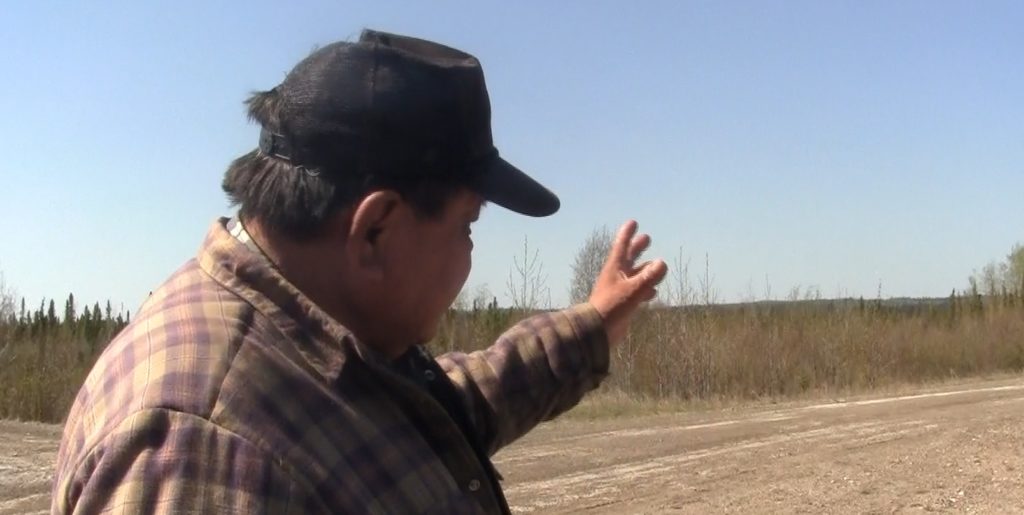This place is called Madáts’atl’ǫje, which means “Snares Set Around It”. We have been hunting and trapping here for as long as we can remember. We used to rely on Madáts’atl’ǫje during the long cold winter when food was scarce, because our hunters could always find moose here to sustain us. We would set up large snares around the hill at the center of Madáts’atl’ǫje, and then drive the moose off the hill and into our snares.
You can watch Sam Acko talk about hunting, survival, and respect for animals in the story of “The Man Who Turned in a Moose” at Madáts’atl’ǫje. Then, listen to the late Billy Makadahay singing the “Hard Times” song, which was often sung during times of extreme cold and hardship, to bring warmer weather.
Over the last fifty years, the area around Madáts’atl’ǫje has been greatly impacted by oil and gas development. Now, pipelines radiate out from the Ladyfern Compressor Plant in all directions. The pipelines connect well sites and convey the oil and gas pumped out of this land to far away markets.
We are concerned that the moose that eat the willows and drink the waters near the well sites will become sick from the chemicals used in oil and gas production. That is why we monitor the developments in this area and exercise our Aboriginal and Treaty rights to protect our natural resources.
Tommy Attachie talks about what Snare Hill was like before industrialization, how industrialization has affected Dane-zaa people, and what he hopes for the future.
Learn more about this special place including the stories and songs associated with it by visiting our Dane Wajich educational website here.



